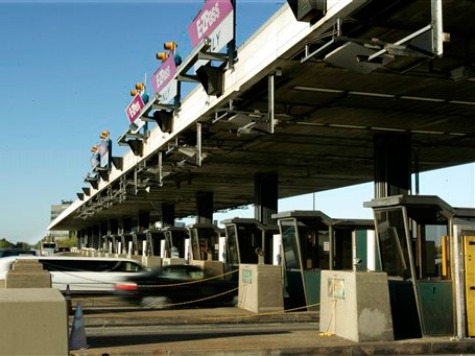
A small-government move that could save the overtaxed state of New Jersey millions faces strident union opposition, as the authority governing paid highways considers privatizing toll collection in the state.
According to the Star-Ledger, a meeting of the transit authority governing toll collection floated the idea of privatizing the jobs of those waiting to hand out tickets and give change to commuters in the state. Increased use of technology such as EZ-Pass has made the work increasingly rare, with the workforce in the state of New Jersey down to less than 400 employees on the highways.
The New Jersey Turnpike Authority is now officially soliciting bids from private corporations interested in supervising the work, though not without opposition from union leaders. One such leader railed that such “concessions” would be “criminal,” given Christie-era pay cuts on toll collectors.
“The Authority has saved tens of millions of dollars at our expense in the last two years,” said International Federation of Professional and Technical Engineers Local No. 194 leader Kevin McCarthy. Before such reductions, toll collectors were making an average of $65,000 a year and are now at almost $50,000 on average.
It is expected that privatizing the work will also reduce salaries and that the contract method will save taxpayers money otherwise spent on these employees. New Jersey is among the highest-taxed states in the nation seeing the lowest return on their investment, and such a move, argues Turnpike Authority Executive Director Ronnie Hakim, could save “millions.” The Authority, whose annual meeting transpired this week, also managed to keep toll payments stable for the year.
Rumblings in favor of getting the government out of toll collection have surfaced for years, while unions have regularly opposed the move to privatization–which would make those who pay the toll collectors private contractors but not privatize the roads themselves or any aspect of their maintenance. Unions have opposed such moves and used dramatic measures to negotiate contracts for years. For example, in 2011, they orchestrated a sit-in at the annual Authority meeting, causing the meeting to end early as union protesters loudly jeered Authority officials.
The Ledger reports that any changes towards privatization, while “likely,” will more probably than not occur several years down the line.

COMMENTS
Please let us know if you're having issues with commenting.